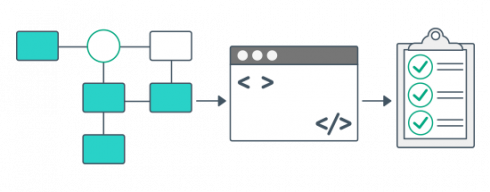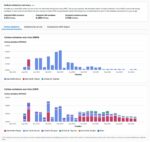
Enterprises are approaching DevOps and Agile ALM at various paces and from myriad directions. With quality control at its center, the Micro Focus ALM Suite is aimed at helping organizations at all levels of adoption to produce software applications effectively, efficiently, and collaboratively, and at enterprise scale, regardless of methodologies.
“We’ve been helping our customers to deliver high-quality, high-performance applications for around 20 years with our ALM and QC solutions,” said Esther Balestrieri, ALM product manager for Micro Focus, a company that merged with HPE Software in September.
“More recently, with the digital revolution and teams embracing Agile and building DevOps-based practices, we’ve recognized that our customers’ life cycle management needs are changing.”
Most organizations are now in the process of transitioning to DevOps, a set of practices for automating processes among development and IT operations, enabling the two divisions to work together instead of functioning as solo silos.
In contrast to non-iterative linear “waterfall” approaches to software development, agile development incorporates iteration and continuous feedback across the application planning, design, definition, testing, and integration cycle.
Octane addresses DevOps and Agile needs
“We added ALM Octane to our ALM portfolio about two years ago to address the DevOps and Agile needs of our customers, with growing adoption across enterprises,” Balestrieri remarked.
Yet despite the rise of Agile development and new cloud-enabled software delivery methods, many organizations also hang on to waterfall development technologies to help support legacy applications.
In fact, the recent HPE Quality 2020 Report showed that while only 16 percent of organizations are using Agile yet, 51 percent are leaning in an Agile direction and 24 percent are using hybrid development environments.
Micro Focus works across hybrid environments
In response, Octane’s analytics-driven Octane iterative test environment supports these hybrid environments through integration with a full scope of waterfall and Agile methodologies.
“Micro Focus understands the complexity that exists in our customer environments,” Balestrieri noted. “By embedding the notion of quality and not limiting it to specific commercial tools, we are able to provide a comprehensive end-to-end quality view across the pipeline, and use the data to provide actionable insights.”
Octane integrates out of the box with continuous integration servers like Jenkins, Team City and Bamboo through built-in plugins. Rest APIs are also included, for custom integrations.
“Leveraging the synchronizer, the ALM Suite provides a single source of truth. It acts as a data hub for visibility and traceability in life cycle management, facilitating business processes and rules for governance and compliance,” she elaborated.
“ALM Octane brings all the tools that developers use together under one roof. The dashboard offers a quality heat map for the application which is continuously updated. It provides information on what tests are passing, defects, etc. You can see a view of the state of quality every time you have a build,” according to Balestrieri.
Octane supports a highly extensive selection of tests right out of the box, ranging from BDD tests like Gherkin to UFT-based tests, unit tests, manual tests, load tests, and regression suites.
Support for IT operations, too
Beyond continuous testing, Micro Focus also provides tools for continuous monitoring and control throughout the entire application life cycle, in cloud and traditional software environments alike.
“No matter what an organization’s current level of DevOps, [Micro Focus’] Hybrid Cloud Management (HCM) Suite provides a collaborative framework for dev and ops to rapidly deliver applications,” noted Arul Murugan Alwar, senior product manager, IT Operations Management, Micro Focus.
“This allows the development team to focus on deploying their applications; the operations team to aggregate simple cloud services or compose complex cloud services; applications to be provisioned in environments compliant with IT policies; and executives to track and optimize the cost of cloud services.”
Micro Focus Deployment Automation (formerly Serena Deployment Automation) supports continuous delivery and production deployments by automating the deployment pipeline, reducing cycle times, and providing rapid feedback to development, test, and ops teams.
Orange, one customer, needed to accelerate application delivery to be able to release several times a day. Orange chose Micro Focus ALM Octane to automate test management and introduce continuous deployment. ALM Octane transforms testing by accelerating speed and quality through integration of Agile, Jenkins and open source
Moving forward into the future, Micro Focus continues to support ever evolving customer needs through compliance with emerging standards like SAFe as well as innovations such as predictive analysis for big data. A predictive analytics module is currently in beta as a SaaS application.






